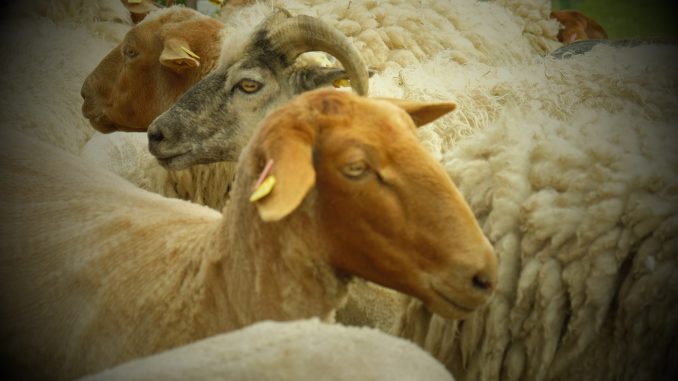
“Anyone who has visions should see a doctor.” – Helmut Schmidt, German Chancellor 1974 – 1982
The European Commission has initiated the process of building a vision for rural Europe for 2040. If time travel were possible and Helmut Schmidt were around today, the Chancellor might have used his famous rebuff to dismiss such a long-term vision. To be genuinely worthwhile, a visioning exercise should look no further than the near future. In these postcards from the future, ARC2020 president Hannes Lorenzen envisions the next seven years, looking ahead to 2027 before bringing us back to 2021 and the present day.
Brussels, January 2027
Finally the breakthrough has been achieved! The EU has achieved the agricultural turnaround – radical and uncompromising. The realisation came late, but just in time.
With the Green Deal, the Farm to Fork programme and the ambitious biodiversity strategy, the European Commission had responded to strong public pressure at the end of 2020, but failed one last time due to the blockade of the Council of Agriculture Ministers and the European Parliament. The agro-industrial lobby defended the per hectare payments, which were completely unsuitable for agricultural policy, and had prevented both social and ecological conditions for direct payments.
Only a few years later drastic corrections became inevitable. The Covid crisis, extreme weather with catastrophic floods in the south of the EU, and prolonged droughts and crop failures in northern Europe had led to further increasing protests, including by farmers. This forced the Member States to reorient their strategic plans for all agricultural and forestry production and gradually to implement regenerative and socio-ecological principles in their regulations and make them a condition for public support.
The European Commission delivered astonishingly consistent directives and regulations to this end. During the long-lasting Covid crisis the central processing and supply structures had proven to be unsuitable, and food insecure. In response the Commission turned off direct payments for land speculators, major investors and agro-industrialists. Small-scale structured farming and solidarity-based agriculture with local and regional supply structures was declared a maxim.
A new European spirit of cohesion
Despite the usual blockades and disputes in Brussels, a new European spirit of cooperation and cohesion emerged between 2021 and 2027 against the backdrop of the global economic crisis triggered by Covid-19. A surprisingly vital civil society, movements such as Fridays for Future and rural parliaments created a new self-confidence in the regions.
The economic crisis, which mainly affects urban areas, has now been tackled from the countryside. Many young families had moved from the city to rural areas thanks to the new digital possibilities. Many new networks of innovative businesses were created, creating new livelihoods combining agricultural, horticultural, food processing and tourism activities with a wide range of online services. Socio-ecological agriculture and forestry, digital and practical in situ training and, above all, social innovation in the field of local energy and transport systems and local industrial production of machinery and IT, made it possible to significantly reduce the burden on urban areas and to create a local bio-economy adapted to climate change.
Europe, with its new integrative power, has become a model for many regions of the world, partly because the nationalism that had long been rampant was lost through new solidarity between national and regional governments. In this way, Europe will come quite close to the goal of climate neutrality as early as the beginning of 2027. The new programmes to mobilise and promote youth within the framework of a new intergenerational social contract have pushed the transformation process forward at an astonishingly rapid pace.
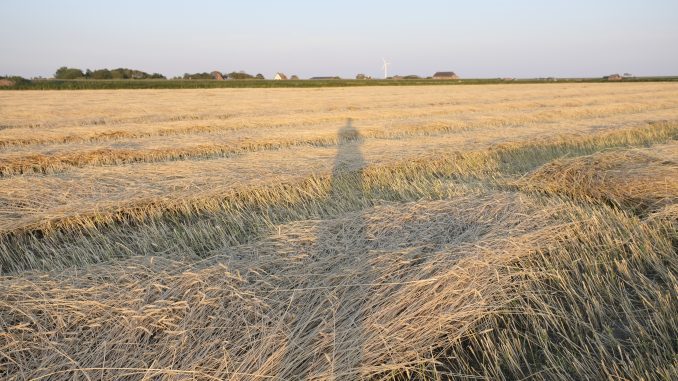
Brussels, January 2021
The political depression
The year begins with a major economic and political depression. The civil society demonstration “We Are Fed Up!” breaks down for the first time after 12 years of continuous agricultural policy fire.
Even without the conclusion of the agricultural policy trilogues, the CAP reform is already considered a failure. How many attempts at reform has this actually been? For half a century almost a dozen agricultural commissioners have tried to turn the tanker around: Manshold, Macsherry, Fischler, Steichen, Fischer-Boel, Ciolos, Hogan.
What has actually changed in principle during this period? A lot of tax money is still being distributed. Those who have a lot of land still get a lot of money. Rural agriculture is losing many people. The agro-industrial complex is gaining power. Farmers’ debt is increasing. Biodiversity is declining. The risk of crop failures in climate change and open agricultural markets is increasing. Soil fertility and food security are declining.
Yet more and more farmers, more and more consumers; more and more civil society organisations and, above all, young people are calling for a change in agriculture. Why is it not coming?
Agricultural business as usual
There are two reasons. Firstly, the inseparable interdependencies of the old boys’ club behind the agro-industrial complex. Secondly, the continuous strategic weakness of the social and ecological counter-movements.
The agricultural lobby has many largely invisible political allies upstream and downstream of the agricultural value chain, in the chemical, machinery, processing and food chains, in the ministries of agriculture and in the parliaments. Large farmers’ lobby organisations like COPA/COPEGA still manage to present themselves as the representatives of the farmers they have long since ceased to be.
The numerous political counter-movements on the other side, from nature, animal welfare, environmental and climate protection to farmers’ and rural alliances, generally share a common vision but do not have a common strategy for practical implementation and perhaps for this reason do not yet show sufficient joint political action. So although they have an astonishingly continuous presence in the public arena, they are unable to use this power to implement the agricultural turnaround politically.
Because of the obvious scandals and damage it has caused, the agricultural lobby has long dominated the political discourse that makes the case for the agricultural turnaround so urgently needed. But the counter-movements are getting lost in different vested interests, making it easy for the persistent forces to mobilise their cronies for business as usual.
Institutional powerlessness
Another reason for the inability to reform is inherent in the three EU legislative institutions themselves. Since the major overproduction crises of the 1980s and 1990s, the pressure for reform has come from the Commission. It is the guardian of the Treaties. It has the sole right of legislative initiative and must at the same time implement the decisions of the Council of Ministers and Parliament as executive. It must manage the common agricultural budget jointly and monitor the application of Community legislation.
In the Council of Agriculture Ministers, on the other hand, national interests are represented and political success is measured by how much money comes home from the common budget.
Ever since the European Parliament began co-deciding on agricultural policy, there has been hope that the CAP would be democratically reformed to meet the challenges of the day. This hope has not been fulfilled during the last three attempts at reform. Parliament and the Council have already pulled the tooth of sensible regulations in the run-up to the Commission’s reform proposals and completely watered them down in the legislative process. This was also the case at the end of 2020, at the beginning of the trilogues between the Commission, Council and Parliament.
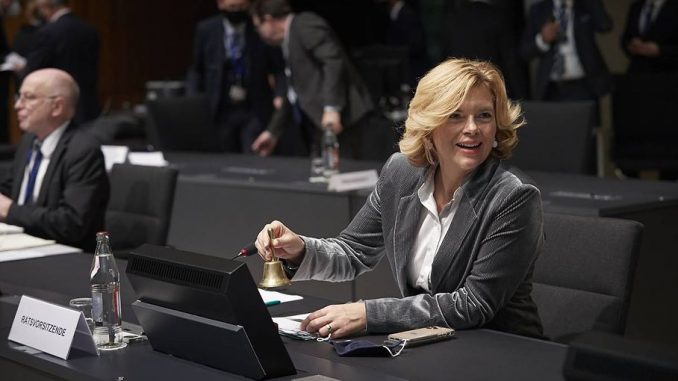
Meanwhile, back in 2020…
German Council Presidency 2020 – Agricultural policy in reverse
Chaired by Germany’s Federal Minister for Food and Agriculture Julia Klöckner, the German Presidency of the Council played a remarkably backward-looking role. It had kept a low profile for two years, with Member States in the background preparing to deliberately undermine Commission proposals. Towards the end of the Presidency, Klöckner changed her rhetoric, sold the Council compromise as a huge success, but as a result fell behind the current agricultural policy with the common Council position achieved.
Non-binding and voluntary was the motto in the application of the measures for climate protection, protection of biodiversity, regenerative agriculture, in short for all the challenges of the time. All the ambitions which would have given the Commission’s proposals more substance and direction within the framework of the national strategic plans were rejected, except for the setting of a minimum budget of 20% for the new non-binding eco-schemes. This meant that ceilings for direct payments, a binding redistribution of first pillar funds to rural development, social and ecological innovation were off the table from the outset. The bottom line was that the Council’s position before the start of the trilogue negotiations with Parliament was a reform in reverse and an invitation to Parliament to meet again at the end for business as usual.
Toothless EU Parliament – “More was not possible”
So the EU Parliament has once again proved to be a toothless tiger. In its position before the start of the trilogue negotiations, it rejected the ecological and social ambitions of civil society and progressive farmers’ and environmental organisations. In sometimes unfair voting procedures, a grand coalition of Christian Democrats, Socialists and Liberals rejected precision in the legislative resolutions which would have given direction to the Member States’ strategic plans, at least in the area of largely voluntary agri-environmental measures and targeted support for farm structures. “More was really not possible” was the refrain of many members of the majority camp who would have liked more. This suggests that there is not much left to negotiate in the trilogues which are still ongoing.
National Strategic Plans – risk renationalisation or green opportunity?
The ball is now in the court of the administrations and decision-making bodies of the individual Member States. The refusal of the Commission, Council and Parliament to translate environmental, social and economic necessities into concrete policy guidelines at European level was, after all, coupled with a considerable increase in the scope for CAP implementation by the 27 capitals. The danger of renationalisation and destructive competition is great. But it is best addressed when federal and national administrations and governments can no longer practise business as usual in camera. Ambitious strategic plans will only be possible if pressure is exerted publicly and strategic networking between movements is organised on a European scale. ARC2020 launched such a network in 2020 together with the Heinrich Böll Foundation, and will deepen this work in 2021.
In Germany, 8 out of 16 states have Green ministers for agriculture. Therefore it will be important that the Greens consistently bring their influence to bear in the parliaments and governments of these states regarding the law on the implementation of CAP reform due to be passed in early 2021. If the Greens were to be represented in Germany’s next Federal Government, where they would be responsible for agricultural and climate policy, they would have to be able to work for a full legislative period in a framework which reformed the CAP at national level. Otherwise they would be giving up a core part of their programme.
CAP Strategic Plans on Climate, Environment – Ever Decreasing Circles
Green Deal and Farm to Fork – an ace up the Commission’s sleeve?
The Commission’s proposals for a European Green Deal and for a specific “Farm to Fork” strategy owe their success to the EU’s decision to become the world’s third largest economy to become carbon neutral by 2050. Commission President von der Leyen compared this political “venture” in spring 2020 with a moon landing.
The Commission published the strategic decisions on the Green Deal two years after the legislative proposals for CAP reform were presented. At that time, it should at least have adapted, if not withdrawn, its CAP proposals, which had become unsuitable for implementing the Green Deal. The Parliament and the Council could also have interrupted their deliberations or rejected the Commission’s proposals in order to wait for an appropriate adaptation and to integrate the climate-related objectives into the CAP reform. None of the three institutions has taken the initiative to do so, thus rendering the Commission’s essentially correct and necessary strategy proposals meaningless. Because of Covid, the work of the institutions slowed down and in some cases ground to a standstill in spring 2020. There was therefore a real possibility of a revision. Even if this opportunity to update the CAP reform still exists politically in early 2021, the CAP reform seems to be heading in the wrong direction once again.
The Green Deal, based on the US social contract under President Roosevelt during the Great Depression, is intended to reduce CO2 emissions and promote climate-neutral innovation in all sectors of the EU economy, while at the same time ensuring a new growth strategy and global competitiveness. Agriculture is explicitly mentioned as an important pillar of this strategy, but mainly in terms of a reduction of agricultural production, new afforestation and the extension of protected areas. At least 30% of the EU’s land area and 30% of its seas will be specially protected. The Green Deal will extend protected areas such as Natura 2000 and flora and fauna habitats, and create networked ecological corridors. Disaster preparedness, renaturalisation of river courses, and special areas for CO2 storage are thus mainly located outside agricultural production.
The Green Deal does point out the risk of chemical pesticides in plant production and antibiotics in animal husbandry, and proposes a 50% reduction in the quantities applied by 2030, as well as an expansion of organically farmed areas to 25%. However, neither the Green Deal nor the Farm to Fork Strategy, which is an integral part of it, has even begun to spell out a change in agricultural policy towards a social-ecological transformation of agriculture. Von der Leyen’s Commission is not even landing on the moon.
Rather, consumers are being advised to change their eating habits and avoid food waste, similar to Mrs Klöckner’s scandalous “You decide!” campaign. Once again, the Commission’s proposals correctly describe the challenges without politically explaining the necessary structural transformation processes. Instead, the proposals contain a collection of terms that do not really fit together. They correctly name the loss of soil fertility and nutrients, but reduce their avoidance to precision farming and digitisation. They even propagate “qualified market access” against social and ecological dumping, without even mentioning the necessary changes to free trade agreements.
However, the Community’s claim and the call to the Member States to make climate change, the loss of biodiversity and the protection of natural resources the most urgent task of the entire Union remains correct. And that is why it remains urgent and right to call for a revision of the CAP reform proposals now.
The European Commission could now play its cards right and thus demonstrate the seriousness of its climate and environmental objectives. Or it could gamble away its integrative role in a political nose dive that would cost the Commission its role as guardian of integration well into the future. It is scandalous that the Council, in its October 2020 opinion, is blocking even the slightest steps towards environmental and climate protection by calling on the Commission to first carry out impact assessments and scientific advice on the Green Deal and the Farm to Fork before further discussion could take place on the integration of the objectives set out therein in the CAP reform. It is therefore politically correct to put pressure on the Commission now, either to withdraw its reform proposals or at least to present a new proposal for a consistent reform of the CAP halfway through the funding period which has now begun (2021-2027) and to translate the objectives of the Green Deal and the Farm to Fork strategy into a new proposal.
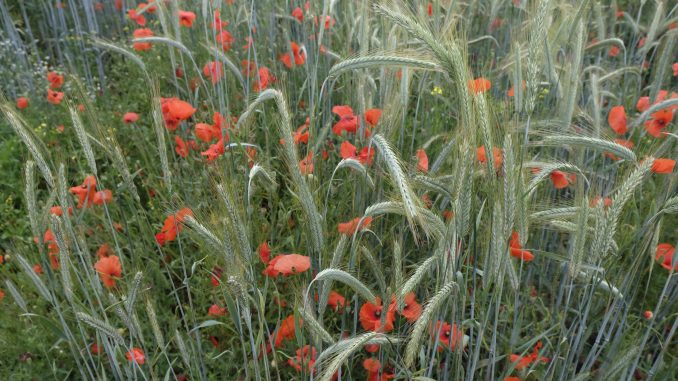
Long-term vision for rural areas 2040
“Anyone who has visions should see a doctor,” was how former German Chancellor Helmut Schmidt used to reply to unpopular visionaries. His advice can help when visions are nightmares. But the vision for 2027 I outlined above is not. Nor does it help, however, if the time frames for visions are too far into the future. The European Commission’s new initiative to build a long-term vision for rural Europe looks to 2040. The vision process was launched by the European Commission in September 2020 and is to culminate in a major conference on the future of rural Europe in March 2021 and an official Communication, the first draft of a new reform project.
Can we expect a new reform project for 2027? First the good news: the visioning process looks at the entire rural economy, the social, environmental and economic challenges. The bad news, however, is that there is no reference whatsoever to CAP reform, because CAP is considered a done deal. There is also no procedural link to the Member States’ National Strategic Plans, and no approach to a programme or strategy that provides for a possible revision or adaptation of the Strategic Plans. So the vision does not start until after 2027, and is then supposed to last until 2040. All a bit late.
January 2021. But now for real. When the Critical Report on Agriculture is published, we are in the process of preparing a new communication from the Commission on the long-term vision for rural areas – 2040. This time a great many Directorates-General are involved, “Democracy and Demography”, Agriculture, Digital, Environment, Regional Policy, Health, etc. The thematic context covers well-known challenges such as rural depopulation and demographic change, access to social and digital infrastructure, economic and social innovation in rural areas, but also the consideration of a number of socio-environmental goods, climate protection, restoration of biodiversity, the need for a more circular economy and an appropriate response to the Covid-19 pandemic. A more digitised and decentralised way of living and working should attract young people and new rural areas and lead to a reinvention of the countryside.
Rural areas have unique opportunities to contribute to this, says the thematic working group preparing the conference. The Green Deal, Farm to Fork and the biodiversity strategy are at the heart of the Commission’s joint research centre’s work on this project. Recycling, fair transition, a strict climate law, energy integration and renewal of the Energy Directive are on the work programme. There are separate budgets for these fields of action and considerable CAP and economic stimulus funds for integration.
All sounds pretty good. But there are still the strategic plans of the CAP – which are being written by the Member States at the moment. We must now change direction. We cannot afford seven years of standstill in agricultural policy.
More on CAP Reform
Withdraw the CAP to Safeguard European Green Deal – 27 Organisations
A Rural Proofed CAP post 2020? – Analysis of the European Parliament’s Position
CAP Beyond the EU: The Case of Honduran Banana Supply Chains
Eco-Scheming | Council Adopts a CAP Position of no Ecological Substance
Parliament Plenary – Here’s the Amendments to Vote for and Against
Billions for CAP as an “extinction machine” – Farm to Fork Derailed
Parliament – Big Three Political Groups Try to Scupper CAP Eco-Schemes
Commission Proposes Four Flagship Eco-schemes – ARC2020 analysis



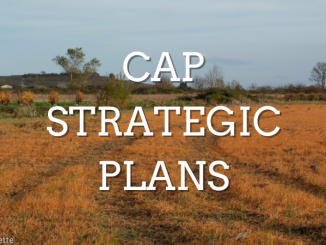
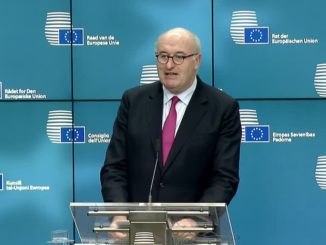

2 Trackbacks / Pingbacks
Comments are closed.